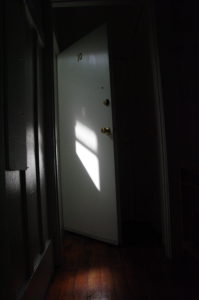What is the Difference Between Breaking and Entering and Burglary in Manassas?
September 6, 2017 by Jean Humbrecht
What is the difference between Breaking and Entering and Burglary in Manassas? These crimes sound the same, and are often confused. They are, in fact, very different crimes. If you are wondering, what is the difference between Breaking and Entering and Burglary in Manassas, read the post below.
What is the Difference Between Breaking and Entering and Burglary in Manassas?


Breaking and Entering and Burglary in Manassas Have Important Differences
What is the difference between Breaking and Entering and Burglary in Manassas? Breaking and Entering and Burglary both involve entering another person’s property to commit a crime. However, there are a number of important differences, including the location of the offense, the offender’s intent, the time of day the offense occurred, the way the offender entered the property, and the range of penalties.
Breaking and Entering in Manassas
There are a number of Manassas Breaking and Entering charges, including Breaking and Entering with the Intent to Commit Murder, Rape, Robbery, or Arson (Va. Code §18.2-90), Breaking and Entering with the Intent to Commit Larceny, Assault and Battery, or other Felony (Va. Code §18.2-91), and Breaking and Entering with the Intent to Commit a Misdemeanor (Va. Code §18.2-92).
Breaking and Entering with the Intent to Commit Murder, Rape, Robbery or Arson can be committed by entering a dwelling house at night, breaking and entering a dwelling house during the daytime or nighttime, entering a dwelling house or business and hiding, or entering a business or other place open to the public without committing a breaking. This crime is a Class 3 felony, which is punished with 5-20 years in prison and a fine up to $100,000.
For more information on Breaking and Entering with the Intent to Commit Murder, Rape, Robbery, or Arson, click here.
Breaking and Entering with the Intent to Commit Larceny, Assault and Battery, or other Felony can be committed by entering a dwelling house at night, breaking and entering a dwelling house during the daytime or nighttime, entering and hiding, or entering a business or other public place with the intent to commit a larceny, assault and battery, or other felony. This crime is punished with up to 20 years in prison and a fine up to $2,500.
For more information on Breaking and Entering with the Intent to Commit Larceny, Assault and Battery, or other Felony, click here.
Breaking and Entering with the Intent to Commit a Misdemeanor (other than Assault and Battery or Trespass) is committed by breaking and entering an occupied dwelling house in the daytime or nighttime. This form of Breaking and Entering is a Class 6 felony and is punished with up to 5 years in prison.
For more information on Breaking and Entering with the Intent to Commit a Misdemeanor, click here.
If the offender committed a Breaking and Entering by using a deadly weapon, the offense will be charged as a Class 2 felony, which is punished with 20 years up to life in prison and a fine up to $100,000.
Burglary in Manassas
Burglary in Manassas (Va. Code §18.2-89) is breaking and entering the dwelling house of another, at nighttime, with the intent to commit a larceny or felony therein. A Burglary charge is a Class 3 felony and is punished with 5-20 years in prison and a fine up to $100,000. If the offender used a deadly weapon to commit the Burglary, the charge becomes a Class 2 felony, which is punished with a minimum of 20 years up to life in prison.
For more information on Burglary in Manassas, click here.
What is the Difference Between Breaking and Entering and Burglary in Manassas?
So, what is the difference Breaking and Entering and Burglary in Manassas? One difference is the location of the offense. An offender can be convicted of Breaking and Entering in Manassas if he entered a dwelling house, business, or other place open to the public with the intent to commit a crime. However, an offender can only be convicted of Burglary if he entered a dwelling house.
Another difference between Breaking and Entering and Burglary in Manassas is the intent of the offender. To convict an offender of Breaking and Entering in Manassas, the Commonwealth must prove that the offender committed the crime with the intent to commit murder, rape, robbery or arson, intended to commit an assault and battery, larceny, or other felony, or intended to commit a misdemeanor. Burglary, however, requires only the intent to commit a larceny or felony.


One Difference Between Breaking and Entering and Burglary in Manassas is the Range of Punishment
The third difference between Breaking and Entering and Burglary in Manassas is the time of day that the crime occurred. An offender can be convicted of a Breaking and Entering based on conduct committed during the day or night, whereas an offender can only be convicted of Burglary if he entered the dwelling house of another at night.
Another difference between Breaking and Entering and Burglary in Manassas is the breaking and entering component. An offender can be convicted of Breaking and Entering if he entered the property at night, broke and entered the property during the day or night, entered and hid, or entered a business at any time, whether or not a breaking occurred. To convict an offender of a Burglary charge, the Commonwealth must prove that the offender committed a breaking and entering.
Another difference between Breaking and Entering and Burglary in Manassas is the range of penalties. Breaking and Entering can be charged as a Class 3 felony, a Class 6 felony, or an unclassified felony. A Burglary, on the other hand, is a Class 3 felony.
***DISCLAIMER: THE MATERIAL AND INFORMATION CONTAINED IN THIS POST, ON ANY PAGES ON THIS WEBSITE, AND ON ANY PAGES LINKED FROM THESE PAGES, ARE FOR GENERAL INFORMATION ONLY AND NOT LEGAL ADVICE. YOU SHOULD CONSULT A LICENSED ATTORNEY IN YOUR JURISDICTION BEFORE RELYING ON ANY OF THE INFORMATION CONTAINED ON THESE PAGES. SENDING EMAIL TO OR VIEWING INFORMATION FROM THIS WEBSITE DOES NOT CREATE AN ATTORNEY-CLIENT RELATIONSHIP***





